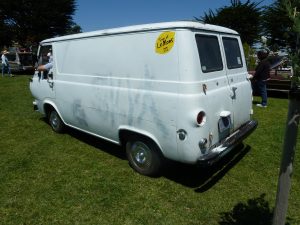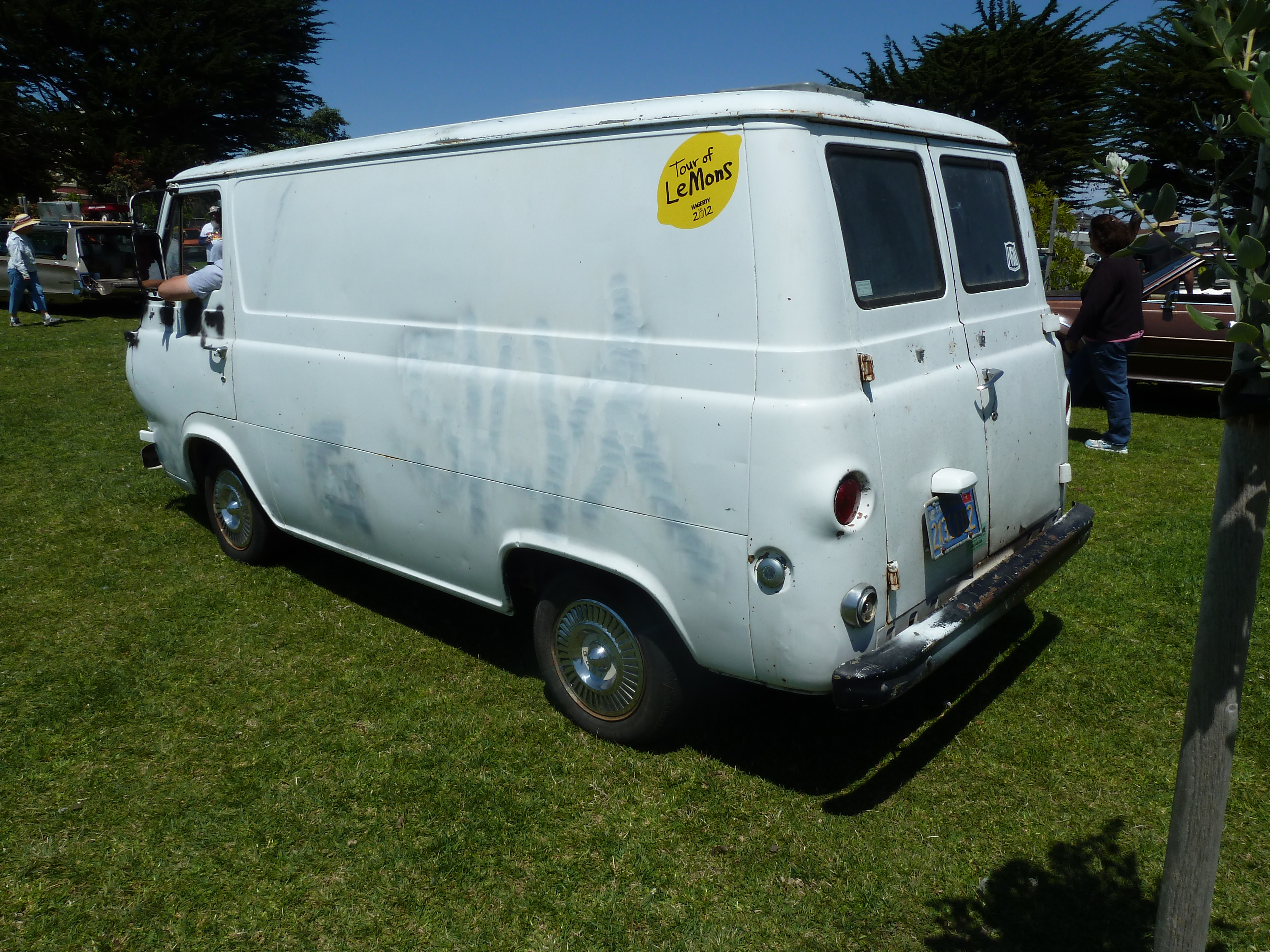During one’s lifetime, we all own at least one vehicle with “personality.” Mine was a 1962 Ford Econoline van.

This isn’t my actual van, but a very close doppelganger snapped at Concours d’LeMons a few years back
It was the barest and most stripped version produced, with a 200 cubic-inch straight-six motor, one-barrel carb, very manual trans, two seats, and the minimum number of windows. No radio, no heat, one sunvisor. The thing was so basic, its wiring harness couldn’t have contained more than one wire.
When it found me in the early 1980s, the van still wore its original, if battle-scarred, “telephone truck white” paint because in its former life it was—an actual telephone service truck. But my Econobox was straight and rust free, and at least two of the tires matched. Can’t say the same for the wheels. I think the van had about 300,000 miles on it. Or it could’ve been 3,000,000.
Why did I buy this forlorn shoebox? I didn’t on purpose.
Someone (just a random dude, as in “that thing, that time, with that guy...”) owed me a couple hundred bucks, and we reached the point where I knew he’d never repay me. So I took the 14 Caret gold bracelet–an inch wide, finished in that Miami Vice “chunks of gold” look — directly off of his wrist. Literally. Since I don’t wear pastel suits, I decided to dump it for whatever I could get. Another guy I knew wanted the wrist bling, and “whatever I could get” was The Van. We traded, although I always wondered if that was really his signature on the title transfer.
It ran well enough-whenever it started. The timing was always out of adjustment. I’m sure the timing chain stretched like Silly String. But the cool thing about the first-gen Econoline is that the engine was mounted in the middle, making it one of the few vehicles on earth that allowed you to sit in the driver’s seat, and adjust the timing simultaneously. Too much advance, and it pinged or just wouldn’t fire; retard it too far, and it had no power and would overheat. But I could twist the distributor too and fro it while driving, allowing me the choice between these evils.
Once the timing was set to within, say, 30 degrees of proper advance, the next challenge was shifting gears. The bushings still present in the three-on-the-tree’s column linkage were worn beyond hope, and I think one of the locating pins was a wood screw. Gripping the shifter handle was as effective as stirring a jar of rocks with a screwdriver: You moved things around a bit, but with no meaningful result. However, by grabbing the shifter stalk at its base, down close to the steering column, and demonstrating dexterity equaling that of a neonatal brain surgeon, I could, on occasion, affect forward gear changes. Reverse? The trans may have had one. But I never found it.
It was really handy however. Nothing you could put on top or inside could hurt it. No problem getting it dirty, either. A few years later, my dad and I bought a 1972 Ford F-100 longbed pickup (V-8, automatic, air con, and four matching wheels and tires) that made the van redundant. So I sold it. I recall the buyer offered me $500 or a gold bracelet.
I took the cash.

